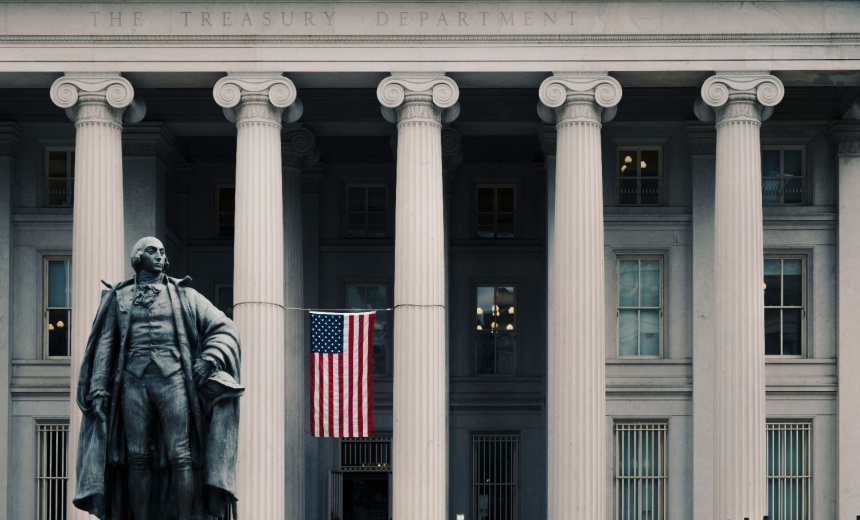Cyberwarfare / Nation-State Attacks,
Fraud Management & Cybercrime
Chinese Hackers Allegedly Target U.S. Treasury Department Offices Related to Economic Sanctions

A recent cyber intrusion linked to Chinese hackers has successfully breached key U.S. Department of Treasury offices that enforce sanctions against illicit international actors. Experts are describing this as a significant escalation in what has been termed the most extensive series of attacks on U.S. critical infrastructure to date.
According to unnamed federal sources cited by The Washington Post, the breach impacted the Office of Foreign Assets Control, the Office of the Treasury Secretary, and the Office of Financial Research. The attackers seemingly aimed to extract sensitive information regarding forthcoming U.S. financial sanctions targeting Chinese entities. Following the detection of the breach in December, the Treasury had to suspend cloud-based technical support from its third-party contractor, BeyondTrust.
A representative from BeyondTrust confirmed that a security incident was identified in early December involving its remote support software. However, the spokesperson did not comment on the possible linkage between this incident and the Treasury breach. This ambiguity raises concerns about the security practices of third-party vendors and their ability to safeguard sensitive governmental information.
James Turgal, Vice President of Cyber Risk at Optiv and a former executive assistant director at the FBI, indicated that the increase in Chinese cyber activities reflects broader strategic aims by Beijing, including technological dominance over the U.S. and preparation for imminent geopolitical conflicts. Turgal noted that these cyber operations are part of a calculated strategy to fortify China’s position on the global stage while exploiting weaknesses in adversaries’ cybersecurity frameworks.
Targeting essential governmental institutions represents a notable shift in tactics, as Beijing aims to undermine confidence in critical infrastructures. The U.S. federal government has responded with several indictments and sanctions focused on Chinese hackers in the previous year, including charges associated with a notable zero-day exploit affecting firewalls manufactured by Sophos.
Despite these developments, the Treasury has not publicly commented on multiple inquiry requests, and the Cybersecurity and Infrastructure Security Agency has remained silent regarding ongoing investigations into Chinese-linked breaches. There are growing indications that U.S. authorities may consider banning major Chinese technology firms, such as TP-Link, in light of attacks that have compromised U.S. infrastructure and increased vulnerabilities to foreign software and hardware.
Additionally, the U.S. has begun imposing restrictions on domestic investments in Chinese technology companies. These regulatory actions aim to prevent U.S. financial resources from supporting Beijing’s military and intelligence operations, underscoring a significant pivot in the nation’s cybersecurity strategy.
Evan Dornbush, a former NSA computer network operator, remarked that the recent Treasury hack adds to an alarming list of nation-state attacks impacting cybersecurity firms. Notably, incidents involving companies such as Okta and SolarWinds were highlighted as part of this growing trend.
While BeyondTrust has communicated with clients and released patches following the incident, experts warn that attackers often exfiltrate data before vulnerabilities are publicly addressed, complicating the timeline of incident response and remediation efforts.
With additional reporting by Akshaya Asokan from southern England.